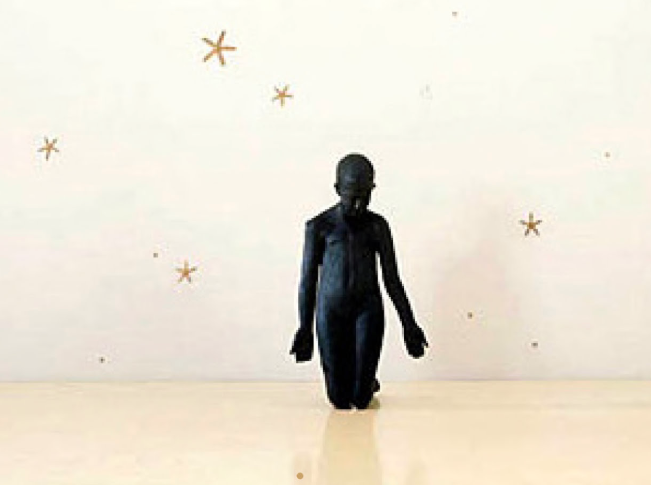Corinna, A-Maying the Apocalypse
by Darcie Dennigan
Fordham University Press, $18.95 (paper)
Any object built with the tool of imagination functions best when it best disguises its own making; a whale and a cathedral are both structurally impressive, but the former lives and moves while the latter just sits there. Of course, the greater glory of the whale also derives from the fact that it is the product of contingency, not design. How, then, to contrive the illusion of poetry that appears as evolved occurrence as much as crafted artifact? Darcie Dennigan’s first collection suggests the answer may be found in a fluid yet faithful devotion to the possibilities engendered by error. In the long poem “The Feeling of the World As a Bounded Whale Is the Mystical” (the title is itself a mishearing of Wittgenstein’s famous dicta), the narrator and a child in her care talk past and through each other regarding an illustration the child has made that depicts her imperfect understanding of Chernobyl: “What I am jealous of in the child, what I really detest in her / is how she nods // with kindergarten grace and finality. Primly, into her pinafore, / she tucks what I’ve told of the story.” Moments later, the narrator wonders “if the dark green slashes are meant to be / radiance, not plain grass.” Dennigan suggests that misapprehension need not be only the inevitable consequence of encounters between persons, but also between persons and words, an exchange that makes the world it marks: “The mothers in the tale were always supermarket braggarts – / My boy was the first to mechanize his fist. / My boy rides a windmill when he needs impetus. / blah blah blah, he surfs on oil slicks.” In this, it matters less that these phrases report what was said than that they approximate what was heard. Of that consistent nonsense, Dennigan makes delightful poetry, a pure aural pleasure more willowy than willed, and as various as language lived.







